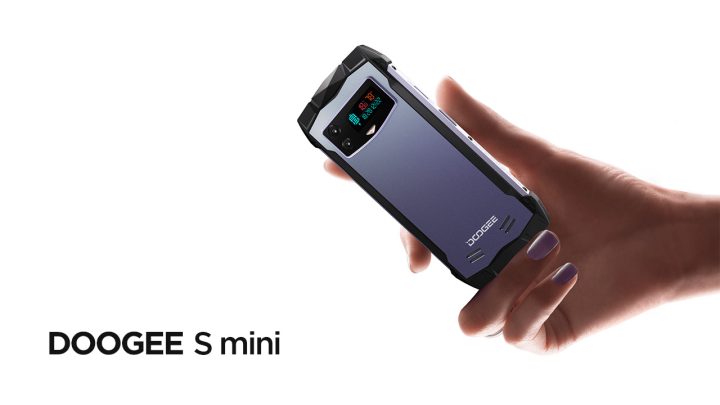I’ve always wondered how gadgets (or electronic appliances) are priced when they land in the Philippines. Been asking around and doing some research and here’s what I got from various sources.
There’s the basic computation and there’s the more complex computation but basically it all boils down to taxes, profit margins, taxes and more taxes.

Here’s the basic formula:
{ Landed Cost + (3% to 50%) Import Tax } * 12% Value Added Tax = Net Landed Cost
The net landed cost is between 15% to 62% on top of the basic cost. This is just the cost to the manufacturer when they bring their products to the Philippines (or the distributor if they’re the ones bringing it in). This also applies if you bought an iPhone 4 in Hong Kong and carry it thru the NAIA airport customs (unless you hide it inside your jacket pocket).
Now the distributor has to make a profit from the cost of the product and the taxes involved in importing the goods. Some sources say the median figure is around 25%.
Resellers get their inventory from the distributors and also need to make a small profit. That figure is around 15%.
Between the distributor and the reseller (retail stores), that’s already 40% mark-up. Those mark-ups may already be inclusive of business tax and VAT as well (although that’s already passed on from the net landed cost above). There’s also marketing cost, advertising and general operating costs.
By the time the gadget reaches the hands of the customer, an additional of at least 50% on top of the base cost is added to the product.
How about certain products that are sold almost the same price worldwide? An example would be the Nokia N8 which is selling in Amazon at around 24k and Php23.7k in the Philippines. In this case, the manufacturer absorbs the differences in taxes and all to make sure local distributors get the same net landed cost and not affect their margins. This usually happens with big name brands only.
How about online sellers and some stores offering below SRP? In some cases, these stores don’t do the VAT computation nor provide an OR (that’s why most manufacturers require an official receipt to claim warranty). Online stores avoid rent of physical stores so they’re able to pass that savings to customers.
Computations vary from country to country. That is why gadgets in Singapore and Hong Kong are generally cheaper compared to the Philippines. That’s not always the case though.
The next time you say the MacBook Pro is cheaper in Singapore by 20%, just remember that the Honda City 2010 that costs Php800k in the Philippines is being sold in Singapore for Php2.6 million.
































Hintay hintay nalang sa mga Pawnshop ang mga social climber at pasosyal where latest gadgets can be bought for almost 75% cheaper…
hi im planning to buy a phone through an online store(singaporean store), the store stated that i should bear the custom duties and import tax. my question is how much will be the custom duties and import tax for 1 cellphone unit?
i want to go sa singapore or hongkong just to buy gadgets there. how much ba plane ticket? ive been in japan na kasi every year pero never pa ako nakapunta ng singapore which is supposed to be mas mura pamasahe
Thanks for the info, Sir Yuga. This really helps. ;)
@ion @Dante: you are both either part of the microsoft fud machine or just some clueless idiots regurgitating what they read/heard from another ms fud machine agent. i guess your just clueless idiots, because the hard core fud machine agent would instantly mention that linux (pre installed) causes piracy.
even if windows is pre installed on every computer sold,it would still be pirated. because when when it’s time to update to the next version, most people don’t want to shell out another 5k-8k again.
i have never encountered a computer being sold where it is not indicated that there is no os installed.
not everyone uses crappy windows, i use linux exclusively at home and at work. i like linux because it’s a cousin of the os (darwin bsd) that runs my iphone 4.
I would have to agree that this is not the proper forum for this kind of debate, however i would still like to refute these arguments by saying:
1. We are in a capitalist country. Your very negative opinions about “big” distributors are biased by the fact that you think they are the ones who squeeze the most out of your hard-earned money. However, these so-called inefficiencies in the economy are, albeit sadly, just simply part of the capitalist system. Simply put, if you don’t want the margins of these gadgets to be passed onto consumers then just by all means, as a consumer, then don’t buy them if you cannot really afford them. Keep your money for a rainy day or for other necessary expenditures.
While you’re at it trying to avoid margins from distributors, don’t buy food also, since food and other consumer goods also have distributors, who pass goods to other middle men, until to your supermarket or sari sari store. Cmon man, at every level, everyone gets some margin, it’s part of the entire system for consumer goods. Almost everything is being sold this way. Do not blame everything on distributors, blame it on capitalism if you want. Or go to North Korea where you can’t negotiate anything. :)
2. I never said that you were an idiot, but I will still defend the fact that some distributors are not making margins on some products, or at least not enough to cover overhead costs. Thing is, do you really think you have much to say on this when you’re not in the business? Please do not assume stuff unless you have hard facts. Have you ever thought that suppliers abroad are also cornering the distributors to make numbers? Have you also thought about competitors in the market dropping prices, price sensitivity, exchange rate, fluctuating fright costs, etc? Those factors also affect margins you know. Not all distributors are “greedy” since some have to make enough margins to cover for various factors. In fact, some distributors for IT are already starting to go down the drain.
3. Again, please try to comment on something you should clearly already know about. For one, not all physically big items carry a huge margin or are the bread and butter of distributors. FYI the strongest sources of incomes are usually the fast moving items which drive bulk. With this in mind, point to me any distributor (not reseller) dumb enough to rely solely on his distribution of 50+ inch LED TV’s, 64GB ipads, 25K video cards, 10.1 speakers etc to cover his daily overhead costs and I will literally bow down in awe for his market prowess. Ika nga, basic strategy here is still “di bale maliit ang kita basta marami benta”. Your strategy for shrinking domestic consumption of these items will never be successful since distributors do NOT rely on these high price items for margins. Some actually lose money because of these high end items.
4. “Bad for consumers and bad for RP” Ok, so go tell that to all capitalist countries who don’t have distributors. Oh wait… everyone in the capitalist world has them. Darn. :(
5. Bottomline: If you want to scrimp on your high value purchases, then by all means, go buy abroad. But your anger toward distributors is both biased and unjustified. Your strategy is simple but will never be successful. I am not forcing you to buy locally since I personally know that there are still better deals abroad for some products. However, one sure headache will be losing local warranty (unless there’s global warranty) and parts, which is why it is still recommendable to SOME CONSUMERS to buy locally for those items.
Lastly, FYI This site is not all being sponsored by distributors. Some are actual local brand subsidiaries, not distributors, and sometimes even coursed through third-party marketing companies. Those things are different as well. :)
I am aware that the small distributors are not in this game and you may well be one of those. If so, then I do not disagree. They are the hardest squeezed between retailers and all the structural problems of the RP. I am not targeting you, in that case.
While this is not the forum for it, you think I am not familiar with your business? Trying to snowball us on a website sponsored by distributors is par for the course, I know. However, “no margin”? You must think we’re idiots. I don’t care if you are a big or small distributor, don’t treat us like idiots.
My strategy is simple. Your argument against it makes sense when you think about a stoppage of buying all items. I am only talking about large items which have the highest markup and produce the bulk of the big distributor’s revenue. I don’t disagree that the volume is too small right now. That’s my point. If we can increase it we can have a major impact.
By shrinking domestic consumption of large ticket, high margin items, we can force change. Whether it be because we have driven all the large distributors out of business or GDP starts to get effected, it doesn’t matter.
You are trying to play on our sympathies, “oh feel bad for the distributors who are gouging us”. Should we be gouged for charity? I would rather donate the money to the pirates than you greedy distributors.
Chase all distributors out of the RP, its fine, if that is what it takes to make change. The system, as it is, is bloated and fat with inefficiencies, corruption and greed. All that cost is being passed to the consumers. Many of whom save up for weeks to buy a gadget to feed fat greedy companies. Its bad for consumers and its bad for the RP.
@herce
from a distributor standpoint, there is always a competition in the market thus pricing should always be competitive. I would have to disagree with what you said with products with multiple distributors. There is NEVER a time that multiple distributors will price their same items at the same price because they have different pricing structures and “diskarte”. If they all have the same prices, what will push resellers to purchase from a particular distributor? Some do portfolio pricing (i.e. use the margin of one product to offset the lower price of another product) to gain more competitiveness with that particular product.
FYI do you know that for some items, there are zero margins for a distributor already? Retail resellers are the ones who get the highest margins in this business. And in a retail perspective, there is also a different game in selling.
Also, do you honestly think that direct to end-user purchases from abroad will drive down local distributorship and retail businesses? Most likely not true, since not enough people are doing this. There is not much pressure to drop prices because it is not much of a competition in that channel. Some end users still prefer to pay an additional small amount to purchase items locally mostly due to convenience and most importantly, after-sales support. This support is the hardest part when you import stuff from other countries since it will be much more of a hassle to send them back for repairs unless those have global warranties.
Thanks for addressing this topic Yuga! I think you emphasize too much on the taxes though. All distributors have ways to bypass the biggest customs duties. Heck, I bypass custom duties for my office equipment, and personal effects when I can add them to an import, and I am a low volume importer. However, at the retail level, those taxes are charged to us, so its more profit for them. In other words the money goes into their pockets not the government’s and charged to as as “taxes”.
For me, I identify two problems. The first is the cost of importing due to our crappy infrastructure. This is more to the province than the metro but it applies here as well. Prices have come down, for example my recent shipment of a 60″ TV from the USA via FRS costs US$220. This includes customs duties and shipping and it takes about 2-4 weeks to get here. Does this mean infrastructure is improving? I don’t think so, I think it means more Filipinos are buying from the US this way and more volume means lower prices.
The 2nd problem is the greedy distributors. Besides charging us taxes that they don’t pay, there is a price fix and so no competition. Sure, some brands only have 1 distributor. But look at brands with multiple distributors, from each distributor the price is the same!
With no competition, there is no way prices will go down. So its up to us to create competition and stop buying large items locally. If we all start buying our stuff abroad, we create competition and price pressure so things have to change or distributors and retails will start to go out of business.
If Yuga wants, I can do a comprehensive article on all the ways I’ve found to buy abroad.
it’s okay yugger.. have no plans of hiding a Honda City in my jacket pocket. lol